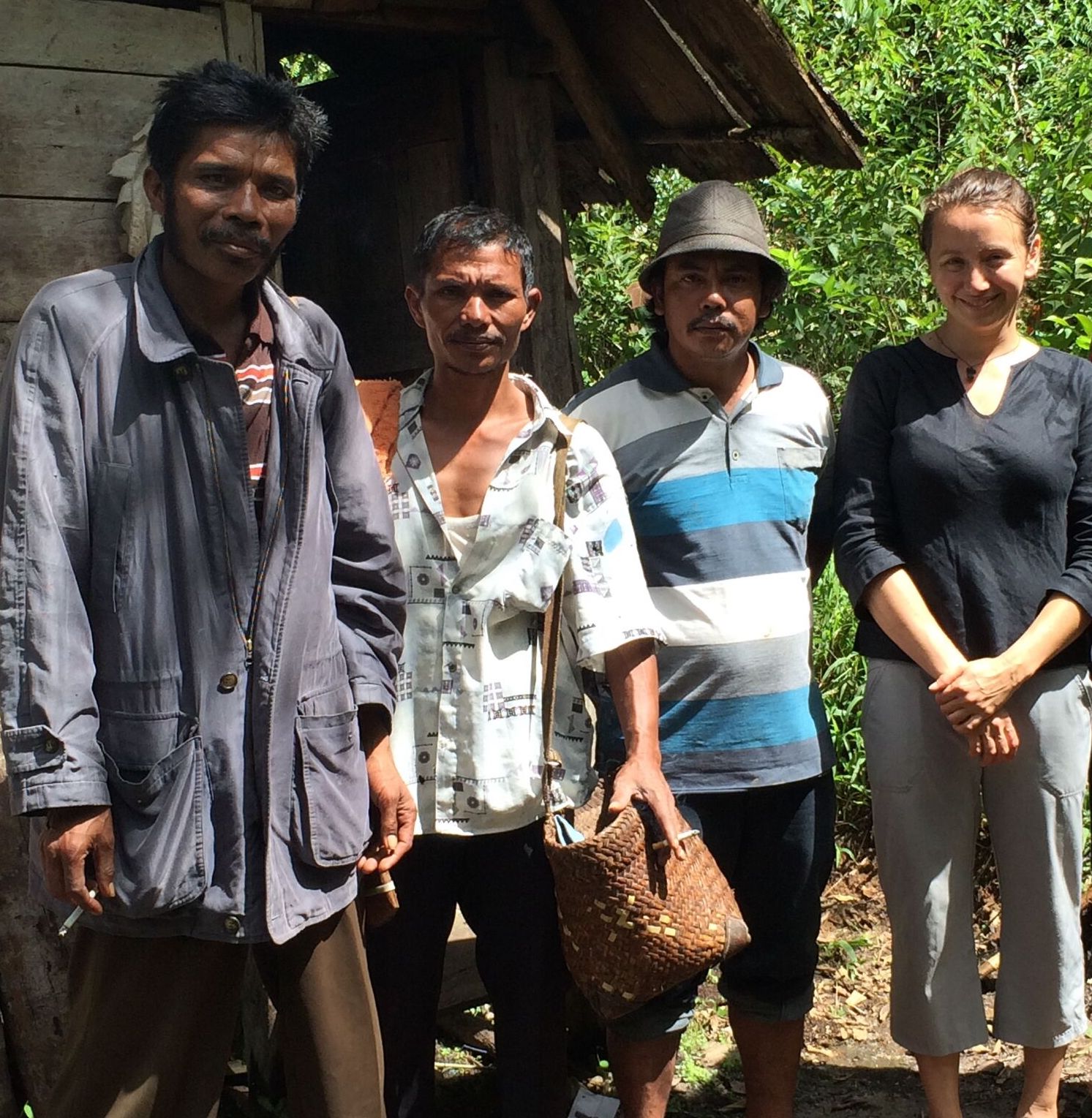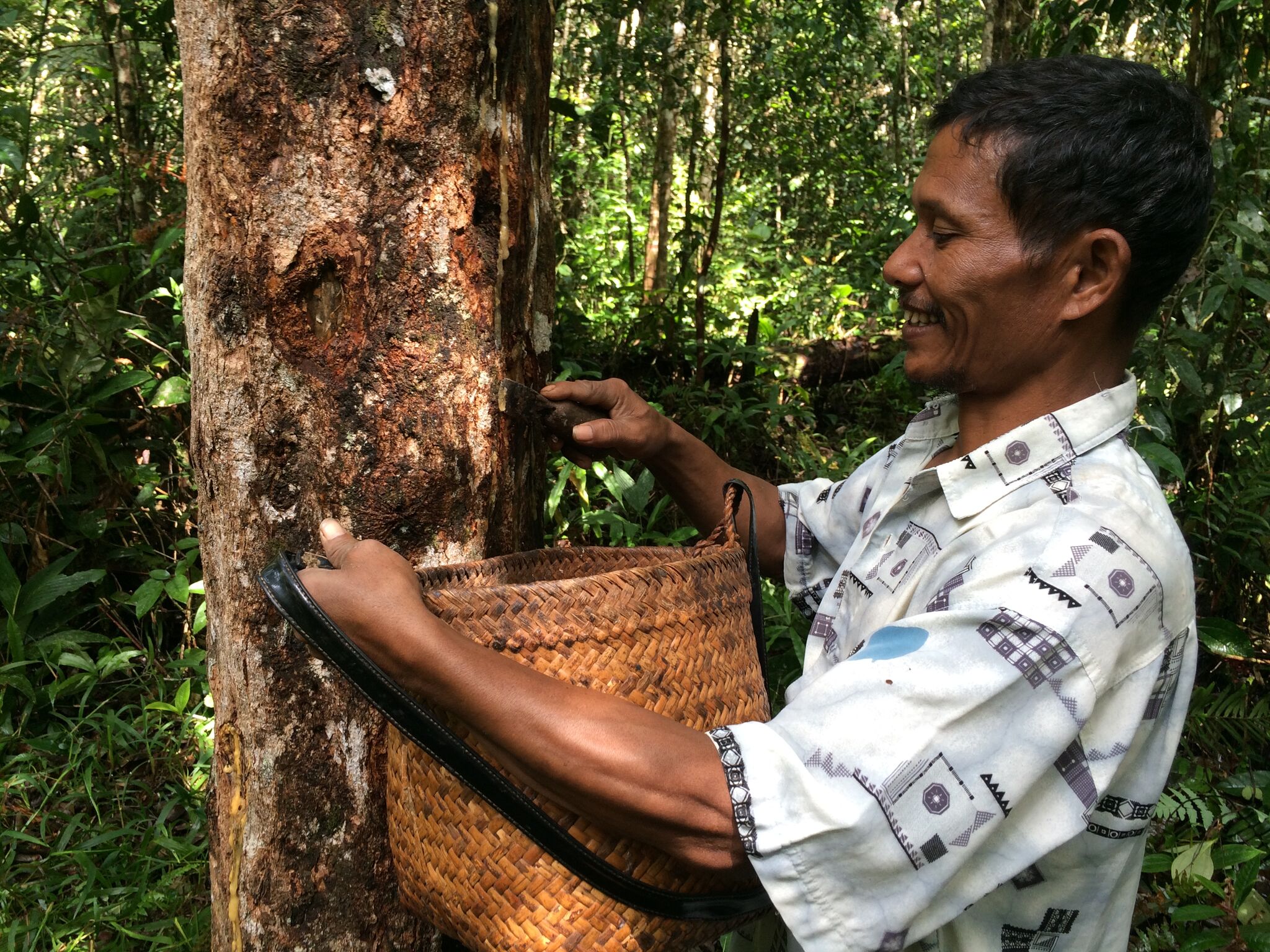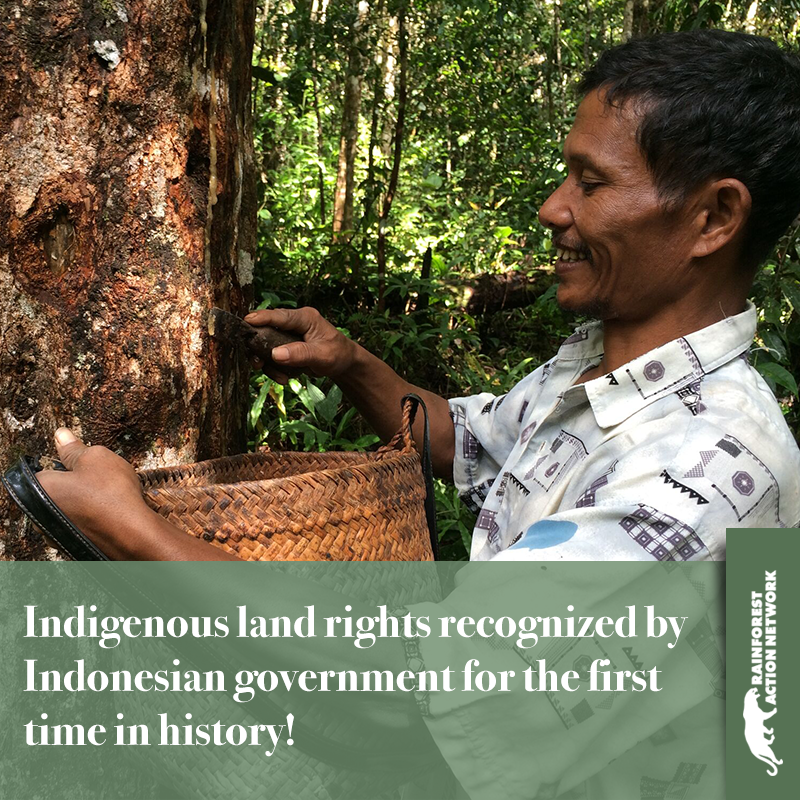After decades of resistance, RAN celebrates return of community lands from pulp giant Toba Pulp Lestari (TPL) to the North Sumatra Indigenous community of Pandumaan-Sipituhuta; encourages Indonesian President to fulfill promise and return 12.7 million hectares of additional land.
Indonesian President Joko Widodo took a strong step toward respecting Indigenous rights and recently announced the return of 13,000 ha of customary land to nine traditional communities, including the Tano Batak Indigenous community of Pandumaan-Sipituhuta in North Sumatra, Indonesia. This is the first time since Indonesia gained independence 71 years ago that communities’ customary land rights have been recognized by the Indonesian national government.
Leaders from Pandumaan-Sipithuta thank President Jokowi with a traditional Batak sarong
President Joko Widodo (or Jokowi, as he is known), announced the land redesignation in a ceremony at the Presidential palace, with community representatives in attendance. The President acknowledged the communities’ rights to their “tanah adat” or “customary land” and instructed the Ministry of Environment and Forestry to remove these lands from the Industrial Pulpwood Plantation licence as has been requested by the communities. During his address, Jokowi also committed to returning a total of 12.7 million hectares of land to local communities and Indigenous peoples. The President also recognized the important role that Indigenous people play in sustainably managing their land and forests.

RAN Senior Forest Campaigner Brihannala Morgan visits Pandumaan-Sipituhuta
“This is a great moment for the community of Pandumaan-Sipituhuta and it bodes well for the ongoing land rights struggles of Indigenous communities across Indonesia. We congratulate and celebrate this hard-fought success,” said Brihannala Morgan, Senior Forest Campaigner for Rainforest Action Network (RAN).
Rainforest Action Network (RAN) has been advocating for the respect of human rights and recognition of land tenure as critical components of responsible purchasing policies for decades. Specifically, RAN’s Out of Fashion Campaign, which profiles wood-based fabrics driving deforestation in places like Indonesia, has profiled Pandumaan-Sipituhuta’s organizing and resistance against the encroachment on their customary land by Toba Pulp Lestari, an affiliate of APRIL and the Royal Golden Eagle Group (RGE). Toba Pulp Lestari has occupied Pandumaan-Sipituhuta’s ancestral land as part of their pulpwood concession for decades, and has cleared community-owned benzoin, or incense forests and converted them to pulpwood plantations despite community outcry, protests, and arrests. The failure to acknowledge community land rights in Indonesia has been recognized by the National Human Rights Commission and others as an underlying cause of much of the conflict present in pulp and paper plantations across Indonesia.
“It’s heartening to see the Indonesian government acknowledge Indigenous land rights in this way. We see this as a first step,” said Morgan. “As President Jokowi acknowledged, there are still roughly 13 million hectares of land that must continue to be distributed to local communities. When communities’ customary rights have been recognized and upheld, they will have the certainty to make the long-term decisions necessary for sustainable management. Further, recognizing these customary rights will lay the groundwork for Indonesian commodities like pulp, paper and viscose to be seen as lower risk in the marketplace.”

Kemenyaan (Benzion) farmer in Pandumaan-Sipituhuta
The return of land to the community of Pandumaan-Sipituhuta was welcomed by the regional human rights NGO Kelompok Studi Pengembangan Prakarsa Masyarakyat (KSPPM), who have been working closely with the community of Pandumaan-Sipituhuta, and other communities seeking land rights, for over a decade. “We are thankful and appreciate the government, specifically Jokowi and the Minister of Forestry, for the redesignation of these customary lands,” said Suryati Simanjuntak, the executive director of Kelompok Studi Pengemangan Prakasa Masyrakayat (KSPPM). “Still, the fight of the community must continue to be strengthened, especially those who have not yet received their rights.”
